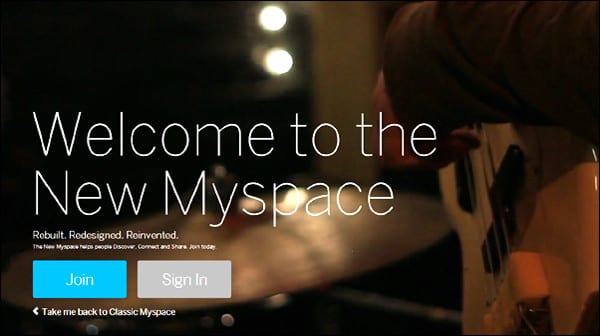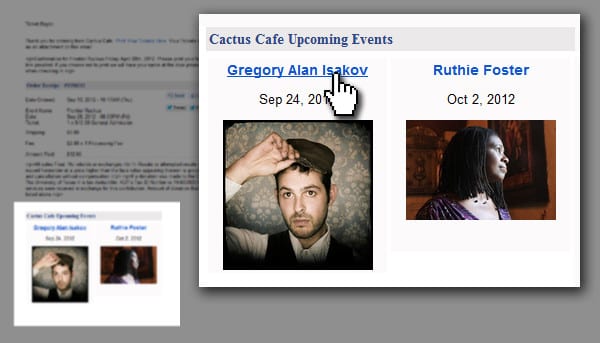
The latest incarnation of a once-mighty social network has left it a pale imitation of its former self. The failed re-launch of MySpace has hurt bands, their fans and, worst of all, music venues. Here's a quick look at what went wrong and how venues can take control of the situation.
My how the mighty have fallen
Before Facebook, before Twitter, Myspace was the social network millions and millions of people used to connect with each other. That was in 2005, right after it was acquired by News Corporation for $580 million. Myspace was eventually usurped by Facebook and sold to a private equity firm that re-launched it as "The NEW Myspace."
One of the best parts about the old Myspace was its ability to help bands distribute their music and build a fan base. The recent re-launch has made a critical error in judgement when it forced bands to re-build their accounts from scratch. After rebuilding their accounts, bands noticed something very, very important was missing. Bruce Houghton explains
There's an absurdly simple reason behind MySpace's dead in the water re-start. MySpace decided that they would erase the audience that the bands had built and ask them to start over...To put it simply, THEY DELETED THE F***ING FANS.
Houghton goes on to be less blunt and quotes Brenden Mulligan, a frequent contributor to Hypebot:
Getting musicians to care at all about MySpace again is a hard enough challenge. Getting them to care enough to try to rebuild a fan base on the platform is out of the question. And that’s what they’re expecting. Every musician starts out in the new MySpace with zero fans. They need to start from scratch. To tell their audience, 'Go back to MySpace and connect with us'.
Mulligan cites these examples: Britney Spears has about 1.5 million friends on the old MySpace. She has fewer than 7,000 connections on the new MySpace.
The failed re-launch of Myspace not only hurts bands but venues too.
Silver lining
 There is a long history of bands and venues sharing the marketing chores for upcoming shows. It is in both parties' best interests to do everything they can to build event awareness and create a buzz in order to sell the most tickets. Disputed pre-sale tickets notwithstanding venues and bands share a common resource - ticket buyers.
There is a long history of bands and venues sharing the marketing chores for upcoming shows. It is in both parties' best interests to do everything they can to build event awareness and create a buzz in order to sell the most tickets. Disputed pre-sale tickets notwithstanding venues and bands share a common resource - ticket buyers.
Time was, when a venue booked a band that made good use of Myspace for self-promotion, it often resulted in higher ticket sales. The band would post on its (old) Myspace page that it was going to perform at the venue, maybe add some incentive ("First 100 people in line get a free t-shirt!") and the show would sell out. The new Myspace has effectively eliminated a band's ability to promote itself leaving all parties to seek a new platform.
Live music venues, who livelihood rests on the number of paid patrons it can get through the door each night, now have one less tool to use but there is a silver lining. The ticketing software venues use to sell tickets to one show, can also help promote the next. ThunderTix's custom confirmation emails has the ability to display upcoming performances in the same music genre.
In addition to custom emails, bands can be assigned "sales agent" status by the venue owner. Once they are sales agents, bands can distribute blocks of tickets and the venue owner can track those sales with ThunderTix's automatic sales tracking by the user.
The days of Myspace being a tool for self promotion may be gone, but savvy use of the features in a ThunderTix account can make up for some of it.